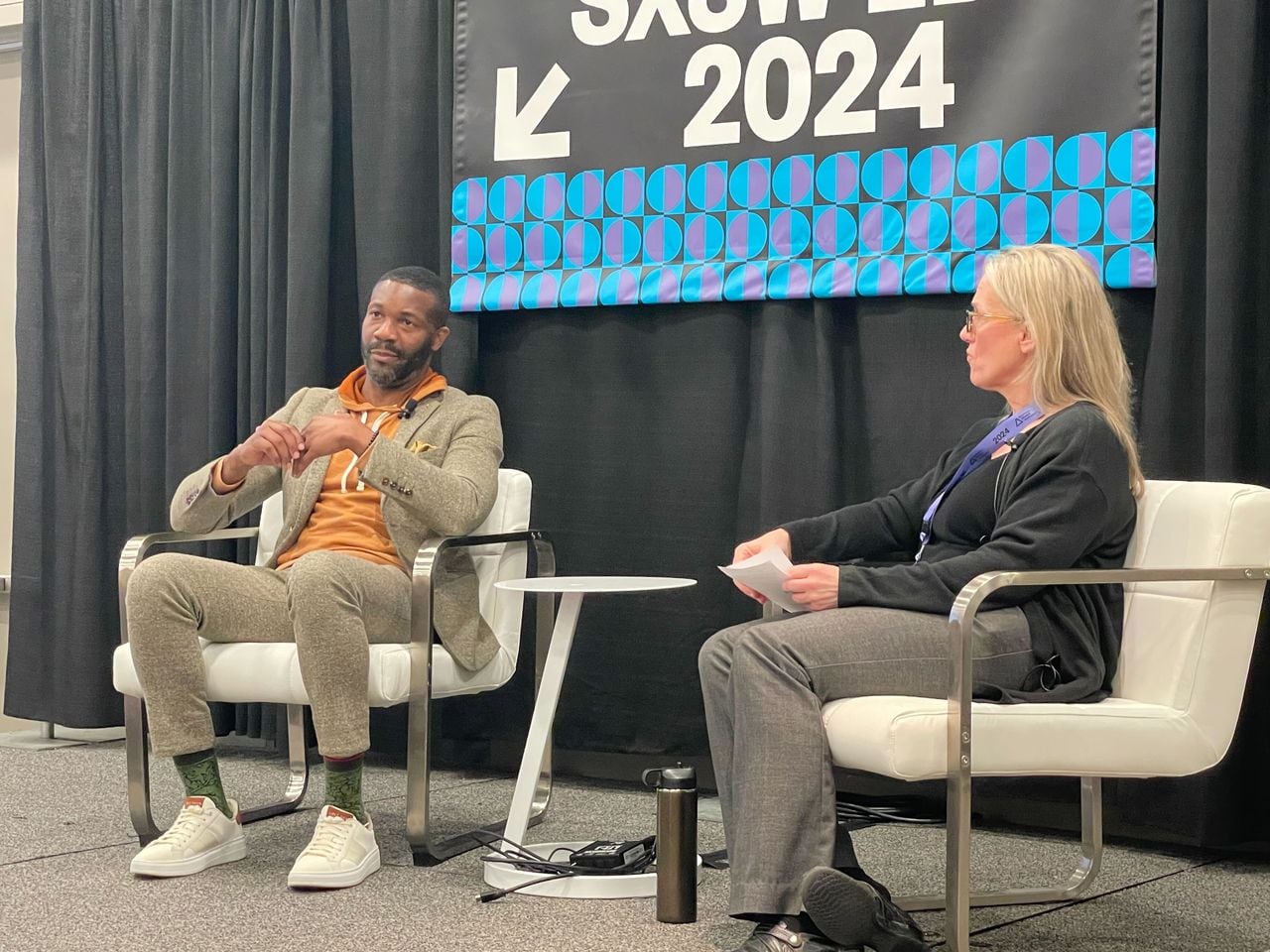Randall Woodfin promotes Birmingham Promise at SXSW EDU: ‘This is not charity’
There are free college programs in all 50 states, but Birmingham Mayor Randall Woodfin believes more cities working to expand college access should look at his effort in Alabama.
In 2020, Woodfin, who campaigned on education, crated the Birmingham Promise program. It offers free college tuition scholarships to students who graduate from city schools. On Monday, he and AL.com Education Lab reporter Trisha Powell Crain discussed the successes and lessons learned from the past four years.
“This is not charity,” Woodfin said. “This is a workforce development slash economic development opportunity.”
Birmingham Promise now works with hundreds of students each school year, who, after applying for the program, can get scholarships to Alabama public two-year and four-year schools. To date, Promise has raised $20 million and has distributed $9 million in scholarships to more than 1,300 students.
The program also places about 35 students each school semester in paid internships with local companies, and is working to add a formal apprenticeship track. (AL.com currently has a Promise intern, Jamarean Heard.)
“This was saying these young people are worth it,” Crain said. “Why?”
Woodfin described his motivation for creating the program – he is a graduate of Birmingham City Schools and his mom was a longtime teacher. High school students deserve support in making decisions about their future, both for school and for future careers, he said. And if they go to college, they should have the opportunity to return to Birmingham and get a good job.
“Everyday, in all of the decisions I’m making, I’m trying to get our city to climb out of poverty,” Woodfin said. “The best way to do that is to make necessary investments in public education. Birmingham Promise is downstream, but it provides a detailed blueprint for the exit plan for high school graduates.”
Woodfin also praised investments the city schools are making in K-12 students, as well as efforts from city hall to support and fund early childhood and wraparound services. Small Magic, formerly known as Birmingham Talks, is a local nonprofit that aims to help families with young children improve speech and vocabulary.
“If you don’t get the foundation right, none of the other parts of that home can do what you need them to do,” Woodfin said, saying more resources, from the federal to local level need to go to help children from birth to 5 years old. “Everybody just looks to the parent to solve the issue at the local level.”
Woodfin ran through the process it took to get the Promise program from an idea to execution: Buy in from local officials, buy in from local companies, buy in from philanthropists and buy in from parents and students.
Each piece is still in process and is being refined and improved by current Executive Director Samantha Williams, he said. Woodfin praised Williams’ work adding coaches who help students manage their time, get through coursework and find success as they enter college.
The program currently operates on a last-in model, filling in the tuition needed after a student receives financial aid. Some local schools have built supports around Promise, including the University of Alabama at Birmingham, which links up directly with local Promise students and helps them get integrated into campus. The program, which is four years old, has not yet graduated a full class of college students, but has had some early success stories. And, according to Williams, many students have already received certificates from community colleges.
Woodfin added that he believes it is important to keep the barriers to college as low as possible. If students fill out their FAFSA and take a standardized test and live within the district, he said, he doesn’t think the program needs to add an income requirement or other requirements to participate.
“Every time you add a barrier, you lose a student.”
A compelling vision for student success, and how a student can and should navigate all of the different decisions around careers and college, should shape the programs and support investor buy in, Woodfin said. And direct conversations with educators are crucial.
“If you are a non educator, but are trying to have an impact on children, don’t have this conversation without having conversations with educators,” Woodfin said.
Crain asked about the mayor’s vision for supports for students who are still in school, especially as the city digs out from the impacts of the COVID pandemic and an ongoing battle with gun violence.
“What we’ve done in Birmingham, we’ve tried to create tools to support our young people, from mental health to conflict resolution to financial literacy to programs for young people who are locked up,” Woodfin said. “We are investing in all of our children. Y’all, we acknowledge, not every child is going to go to college, and that’s okay. There are other paths. We are focused on all paths to support the youngest in our generation.”
